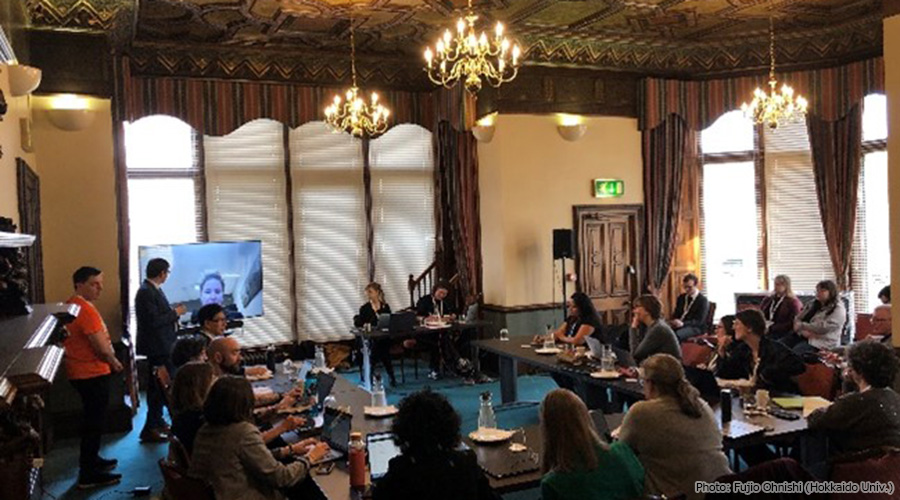Report on IASC SHWG at ASSW 2024
Reported by: Fujio OHNISHI (Hokkaido Universit)
Related research program: International Relations
The Social and Human Working Group (SHWG) of the International Arctic Science Committee meeting (IASC) was held on March 22, 2024 in a hybrid format, including both on-site and online participation. The meeting consisted of an open session (10:30 am to 3:30 pm, open to participants other than SHWG members) and a closed session (4:00 pm to 6:00 pm, open to SHWG members only). The Chair was Catherine Chambers from Iceland, and the Vice-Chairs were Barbora Halašková from the Czech Republic and Ingrid Medby from the UK. I was elected as a member of the SHWG this year and participated from Japan.
In the open discussion, SHWG Fellows introduced their research, SHWG-supported research projects introduced their activities, and SHWG members reported on their activities (volunteer). In the area of SHWG-supported research projects, U.S. elected member Lawrence Hamilton reported on demographic changes in several Alaskan towns and villages from 1990 to 2020, and Dutch elected member Annette Scheepstra described her longtime involvement in research and observation of indigenous peoples, Olga Povoroznyuk from Austria introduced social science research related to the Arctic at the University of Vienna. Hyonkyo Seo from Korea reported on the efforts of the Korea Polar Research Institute in the area of microbiological risk assessment.

In addition, the progress of cooperation with the IASC Standing Committee on Indigenous Peoples’ Participation, the progress of ICARP IV (The Fourth International Conference on Arctic Research Planning), and the process leading to the 5th IPY (International Polar Year: 2032-33) were reported. An audience member asked about the input of ICARP IV into the planning process for the 5th IPY, to which the reporter responded that he had little information and that there were still many uncertainties.
In closed session, most of the time was spent on the review of SHWG-supported research projects for 2024. In addition, the Vice-Chair was elected due to the expiration of Barbora Halašková’s term of office. As a result, Monika Szkarłat, a member of the Polish delegation, was elected as the new Vice-Chair.
Finally, I would like to make some brief comments. This was the first time for me to participate in the SHWG meeting, and I was able to understand the basic protocols of the meeting through actual on-site participation. In the review of SHWG-supported research projects, there were many cross-cutting proposals, and only a few proposals in the humanities and social sciences, the main field of the SHWG, were submitted. However, there were various opinions on the extent to which the SHWG should support cross-cutting research, and we felt that this was a difficult issue. While the increase in crosscutting research reflects the recent trend of Arctic research, it is also important for the SHWG to promote research in the humanities and social sciences within the IASC, which is mainly dominated by natural science research, and how to allocate the limited support is an important theme related to the SHWG’s policy. Many committee members agreed that the overall participation of researchers in the humanities and social sciences in the IASC has not been enough. I felt that this would be an issue that needs to be further addressed in the future in terms of what kind of constructive role the SHWG can play as a working group in the current ICARP IV process, the IASC’s 10-year research plan. In the current IASC, where natural science fields predominate, I believe that the SHWG has a big mission to explain the significance of the humanities and social sciences in Arctic research in an easy-to-understand manner to other working groups.
